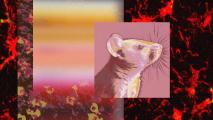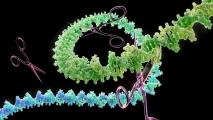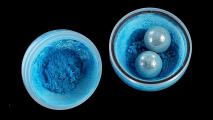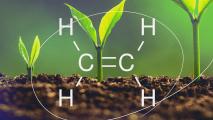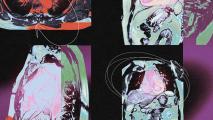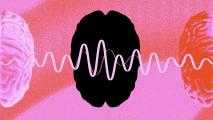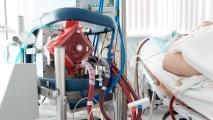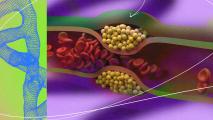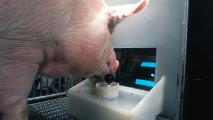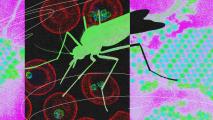
Biotech
Human history has been all but defined by death and disease, plague and pandemic. Advancements in 20th century medicine changed all of that. Now advancements in 21st century medicine promise to go even further. Could we bring about an end to disease? Reverse aging? Give hearing to the deaf and sight to the blind? The answer may be yes. And soon.
More
Cholesterol drug suggests new way to treat Alzheimer’s
A cholesterol drug that reduced brain damage in mice could reveal a new approach to treating Alzheimer’s disease in people.
Search algorithm reveals nearly 200 new kinds of CRISPR systems
Researchers have discovered rare new CRISPR systems that have a range of functions and could enable gene editing, diagnostics, and more.
A new study reveals we can no longer tell AI-generated faces from real human faces
Looking at a face without a life.
Biggest science prize in history aims to extend human healthspan by a decade
Do humans have an ethical obligation to “die young”? Maybe not in the way you think, says bioethicist Raiany Romanni.
Grinding scientists: Mechanochemistry could revolutionize the creation of new materials
Like a kitchen mortar and pestle, mechanochemistry harnesses ball milling to create chemical compounds, simpler, and faster than traditional methods.
First anti-aging drug for dogs nears approval
The FDA is a major step closer to approving biotech company Loyal’s LOY-001, the first anti-aging drug for dogs.
Exposing plants to an unusual chemical early on may bolster their growth and help feed the world
“Priming” plants by exposing them to certain chemicals while they’re seeds can affect their growth later in life.
Australia’s 30-year quest to unlock an ancient painkiller
A crocodile attack led to a 30-year partnership to develop a painkiller based on the Nyikina Mangala people’s traditional knowledge.
Experimental drug cuts heart disease risk factor by 96%
Eli Lilly’s experimental drug lepodisiran reduced blood levels of lipoprotein(a) by up to 96% in a small trial.
Human brains have a remarkable ability to rewire themselves following injury
Every brain injury is unique, as is every person’s path to recovery. A concussion specialist explains the science behind rehabilitation and recovery.
New brain decoder system offers hope for communicating by thought alone
Is this another step towards telepathy?
How do researchers study the prevalence of mental illnesses?
Data on mental health is essential to understand the scale of mental illnesses. How do researchers collect this data, and is it reliable?
A new machine is able to keep the brain alive without a heart
A new device that lets scientists precisely control the brain’s blood supply could lead to new neuroscience breakthroughs.
New ultrasonic technique can destroy toxic “forever chemicals”
We can now use an ultrasonic jackhammer to break apart chemicals
What is brown noise? Can this latest TikTok trend really help you sleep?
Brown noise, the better-known white noise, and even pink noise are all sonic hues. But do any of them actually work?
One dose CRISPR therapy cuts cholesterol by up to 55%
A CRISPR-based cholesterol treatment reduced “bad” cholesterol levels by up to 55% in a small first trial.
Human sleep patterns appear to change with the seasons
Researchers observed the sleep of 188 subjects to see if their slumbers would change in duration and structure along with the seasons.
Want to feel better? Science says to care for your dog
Research shows that caring for your pets can improve your well-being, and that the act of caring provided more improvements than mere companionship
Pigs proven intelligent enough to play video games
A quartet of porcine subjects at the Purdue Center for Animal Welfare Science learned to play a simple video game.
World’s first chikungunya vaccine approved in US
The FDA has just approved French biotech company Valneva’s Ixchiq, making it the world’s first chikungunya vaccine.
Get inspired with the most innovative stories shaping the world around us.













